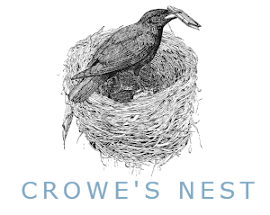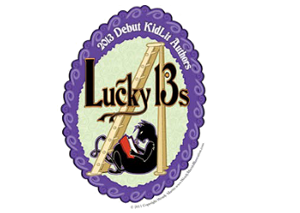Today, though, let's talk about MYSTERY!
 |
Photo credit: gifbin.com |
Some kids love mystery as a genre. But even when kids don’t choose to read mysteries, a mystery in a story– as simple as something the character wants to find out– can really keep a kid glued to a story.
Creating a mystery:
Build curiosity. Even if it’s something as simple as whether a character is a friend or foe. Or what that key they found goes to. Or what that one-eyed, four-legged creature who keeps poking it's head around the corner really wants.
Hint about things. Like a monster, a treasure, or what’s around the next corner.
Works well when there’s a threat to happiness. Because, come on. If the mystery is that the teacher has something in a brown lunch bag on her desk every eight days that she guards fiercely, what's the real motivation to figure out what's in it? Now if every day that the lunch bag appears, there's suddenly a pop-quiz, or the teacher doesn't come back from lunch but the mean substitute teacher does, or on those days hundreds of dragonflies swarm the school, then we care more about figuring out the mystery. (Okay, so maybe hundreds of dragonflies swarming the school would be cool, but you get my point, right?)
Don’t have it go on too long. Have you seen the TV show Lost? For me, when I first started watching it, I was totally hooked by the mystery. Completely intrigued. But then they drug it on way too long without giving us answers, and I got frustrated and stopped watching. If you drag on a mystery for too long, the reader will feel played. Like you're just using a gimmick to get them to keep reading. At that point, it’s usually not worth it to them to play your game just to find out the answers, just like I stopped watching Lost. If you do have a mystery that has to go on for quite a while, give your reader breadcrumbs along the way. Give answers to little things, while still building the mystery for the big thing.
Remember:
The bigger you build the mystery, the bigger the payoff has to be.
Too big of a buildup= unfulfilled plot promise.
Too big of payoff= it doesn't feel earned.
Keep them balanced.
Two more things to remember:
If you want to keep something a secret from the reader, then your point of view character can’t know it. If they do and the reader doesn’t, the reader will feel cheated. If it's absolutely imperative that your main character knows the secret but you don't want your reader to know, and there is no possible way around it, then don't have the character on the page when they should be thinking about it.
NEVER try to build a mystery by making things unclear. That’s confusion, not a mystery.
Next Monday, It's ACTION / ADVENTURE!
































13 comments:
Great stuff, Peggy. Yeah, you have to be really careful about dragging things out too long. It's tough to get that right balance.
Love the GIF, by the way. The rare and shy eight-legged moose!
So many great tips!
these tips are great. I'm not quite ready to venture into MG territory, but I do have an idea I think would be great, so when I stop being a big old scaredy cat these tips will come handy.
Great tips. So enjoying this Monday series. Looking forward to the tips on action.
Great tips here! Thank you :)
Another great post! Your summary box nails it.
Great tips and a good way of explaining them - especially mystery v. confusion!
Nice distinction between mystery and confusion. I've read some things that tried to use the confusion route and it just didn't work. I spent the whole time saying, but they're working on a false assumption, it's going to be this, and then being really annoyed at the stupid characters who wander around not even trying to un-confuse themselves.
Great suggestions, Peggy. Yeah. Too much of a good thing can make you go a little nuts. Or messing with the nature of television characters--like heroes. First they're good guys, then they're bad guys. All for the mystery and suspense. meh I quit watching.
Very good suggestion... it's all about getting the balance right:) Love the moose image...hehe
Now that I'm back in blogging mode, I'll have to go back and check out your previous posts on this series.
Today's post has me thinking about my MG story and the mystery involved in it. Going back to it to revisit some things.
Thanks for sharing this wonderful information.
I agree about the pay off having to be big. Awesome info!
Amen about LOST! I love mystery in any book. I HAVE to have it :)
Post a Comment